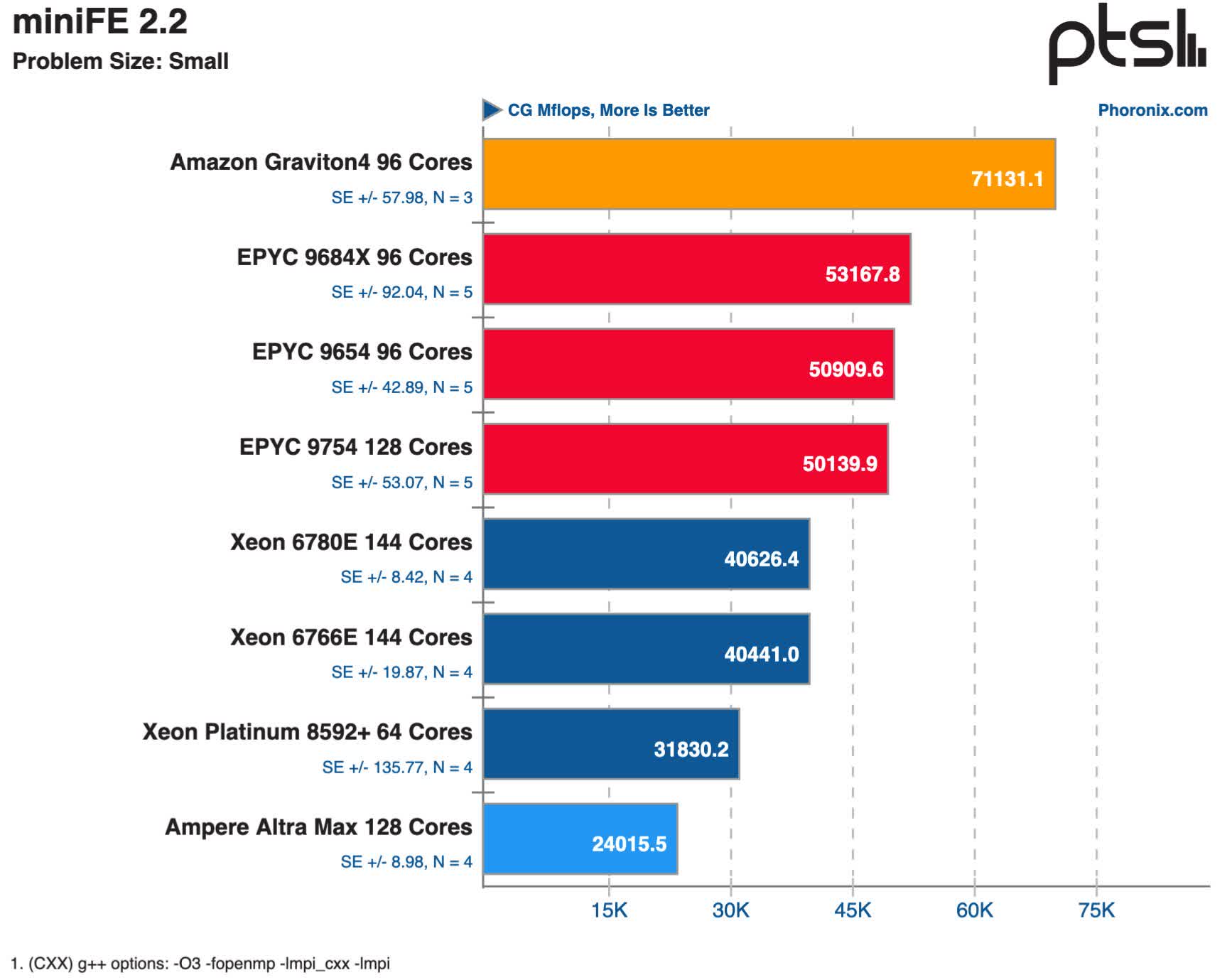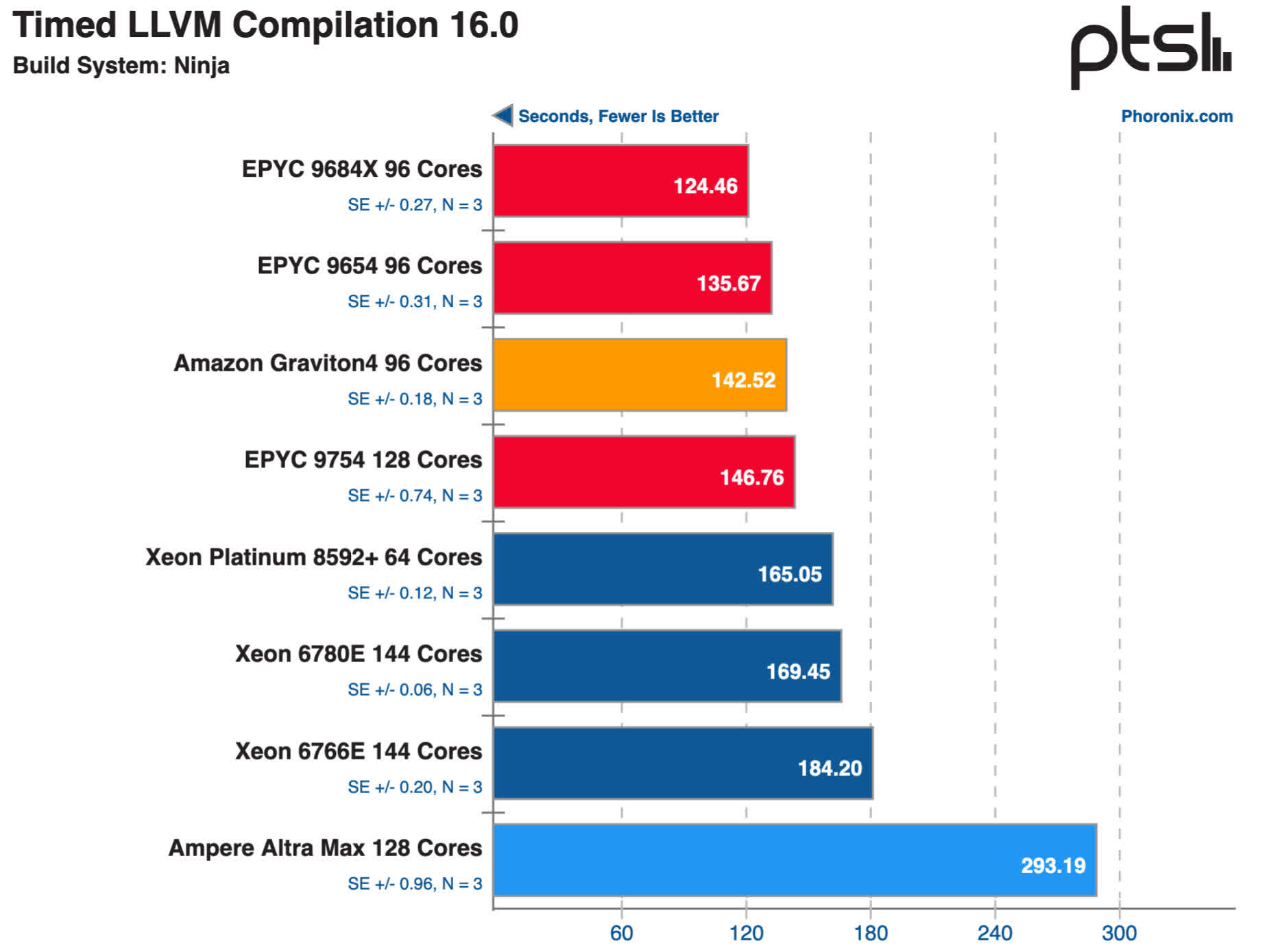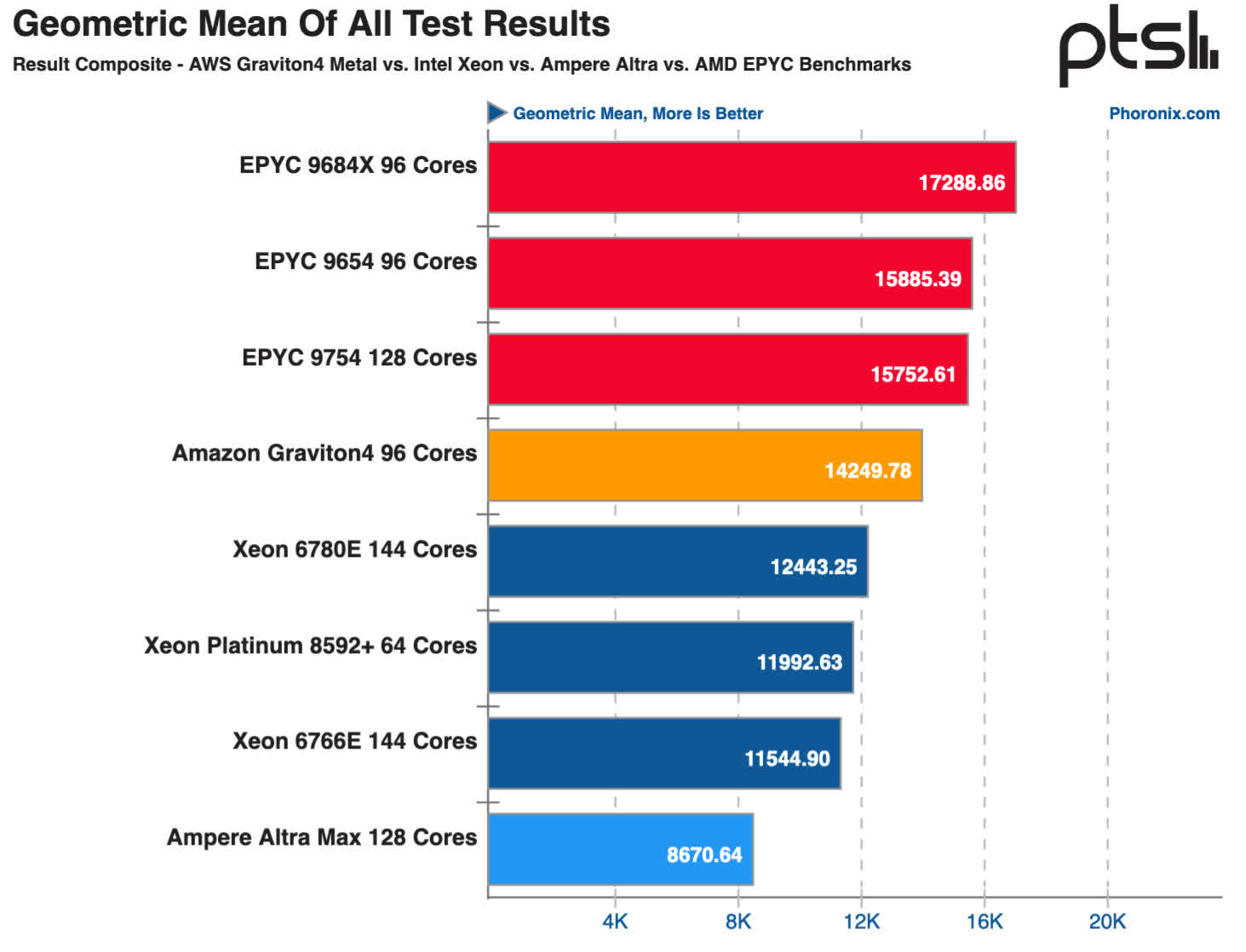In context: Amazon’s AWS Graviton series of Arm-based server CPUs is crafted by subsidiary Annapurna Labs. This lineup was first launched in 2018 to support the Elastic Compute Cloud. These custom silicon processors, featuring 64-bit Neoverse cores, efficiently power AWS’s A1 instances, which are tailored for Arm workloads such as web services, caching, and microservices.
Amazon Web Services has made significant strides with its latest Graviton4 processor. While these chips are exclusive to AWS’s cloud servers, the team at Phoronix has managed to acquire a unit to showcase its performance potential.
Graviton4 comes equipped with 96 Arm Neoverse V2 cores, each featuring 2MB of L2 cache. Additionally, the chip supports 12 channels of DDR5-5600 RAM, providing substantial memory bandwidth to maximize the utilization of its cores. Targeted for R8g instances, AWS claims the new processor offers up to three times the vCPUs and RAM compared to the Graviton3-based R7g instances. Furthermore, the company asserts a 30 percent speed increase for web applications, 40 percent faster database performance, and at least 40 percent better Java software performance.
However, the real excitement lies in the benchmarks run by Phoronix on Ubuntu 24.04. In heavily parallelized HPC workloads like miniFE (finite element modeling) and Xcompact3d (complex fluid dynamics), the Graviton4 significantly outperformed its predecessors and even AMD’s EPYC ‘Genoa’ chips.

One of the most impressive results came from the ACES DGEMM HPC benchmark, where the Graviton4 metal instance, equipped with 96 cores, scored a remarkable 71,131 points, outpacing the second-place 96-core AMD EPYC 9684X, which scored 53,167 points.
In terms of code compilation, the Graviton4 outperformed the Ampere Altra Max 128-core flagship but fell short when compared to varying core count Xeon and EPYC processors. Nevertheless, it surpassed the EPYC 9754 in the Timed LLVM Compilation test.

The surprises extended to workloads not typically associated with Arm chips. The Graviton4 excelled in 7-Zip compression and demonstrated strong cryptographic performance, almost tripling its predecessor’s capability in algorithms like ChaCha20.
After evaluating over 30 different workloads, Phoronix concluded that the Graviton4 is unequivocally the fastest Arm server processor to date, challenging current Intel and AMD chips across multiple tasks.

The high-performance silicon competition is expected to intensify with upcoming releases like Intel’s Granite Rapids and AMD’s Turin. As of now, AWS has a dominating performer with the Graviton4.